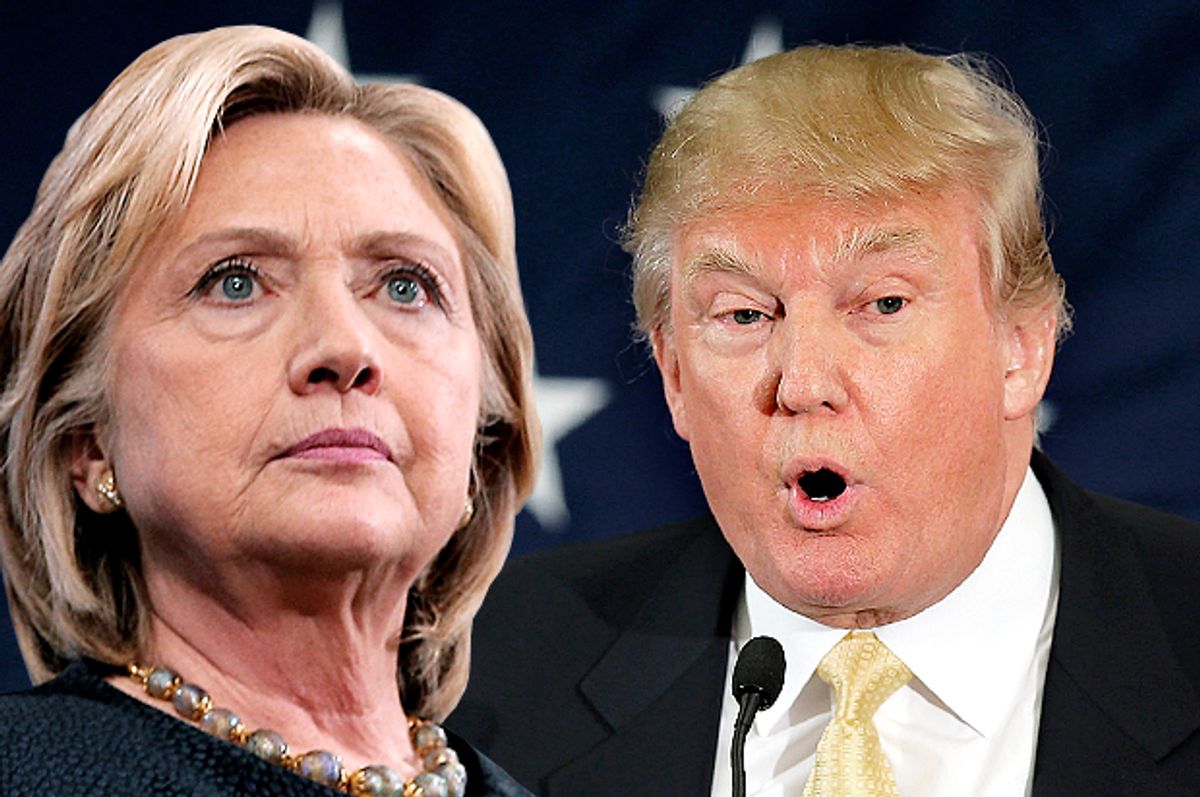It’s primary day in Wisconsin: the land of dairy, socialism, and Joe McCarthy. In both the Republican and Democratic presidential races, Wisconsin is shaping up to be hostile territory for the frontrunners, both of whom are having some difficulty putting away their rivals. But the degree to which the state could alter the overall trajectories of both races depends on whether the frontrunners merely lose or get completely blown out.
Let’s start with the Republicans and the bizarre way in which Wisconsin governor Scott Walker’s long-since dead 2016 presidential campaign is helping tilt the state away from Trump.
Walker was as bad a presidential candidate as one could imagine. He was aimless, awkward, lacking in personal charm, and prone to rapid reversals of position, and his glaring deficiencies were made all the more noticeable by the startlingly high expectations surrounding him as a 2016 hopeful. But as bad as he was, Walker made two intelligent choices as a candidate that are coming into play as his state votes today for the Republican presidential nominee.
The first was that Walker quit the race early – he recognized very quickly that he had no chance at winning the White House, and so he folded up shop in late September and went back to Wisconsin to tend to his political affairs at home. Walker’s second smart move was to recognize the threat posed by Donald Trump to his party and call for the other candidates to unite to stop him. Nobody listened then, but now Walker has the state GOP behind him as part of a unified effort to elevate Ted Cruz over Trump, and it seems to be working – going into today’s voting, Cruz is leading Trump in the polls and poised to put a large dent in Trump’s delegate lead. Wisconsin was a bad state for Trump to begin with, given its demographic make-up, and the candidate has done himself no favors recently, so Cruz and Walker are positioned to deliver a stinging blow to Trump.
The question is whether it will be enough to do real damage to Trump’s push for the nomination. For the #NeverTrump types, Wisconsin is a critical part of the plan to deny Trump the nomination outright. The margin in Wisconsin matters, given how the state apportions its 42 delegates – 18 delegates go to the statewide winner, while the winner of each of the state’s congressional districts gets three. It’s conceivable that Cruz could shut out Trump or limit him to just a handful of delegates, which would force Trump to make them up in later contests. Right now, for the #NeverTrump faithful, it’s all about making Trump’s delegate math as difficult as possible, keeping him from reaching the 1,237-delegate threshold to win outright, and hoping that someone else will prevail in a contested convention.
Any hope of that strategy succeeding requires Cruz to dominate Trump in Wisconsin, deny him delegates, and change the trajectory of the race. The contests following Wisconsin are in the Northeast and Mid-Atlantic regions where Trump is heavily favored, and a number of those primaries are winner-take-all. Scott Walker has given Cruz as much of a hand up as possible and it looks like the Texas senator will win, but a big win would do more for his cause than a squeaker.
As for the Democrats, we once again find ourselves running into the conflict between results and narrative. There was a time when Hillary Clinton held commanding leads in Wisconsin, but the most recent polling shows Bernie Sanders with a small but steady lead heading into today’s voting. And Wisconsin certainly fits the profile of a state that would favor Sanders – he’s run very well in the industrial Midwest, the state has high concentrations of white liberals and college students, and it’s an open primary. For Sanders these are all good signs: he keeps beating Hillary in big states that are critical to Democratic victory in November, and a Wisconsin win would provide another boost in momentum.
But, again, the critical problem he just can’t seem to solve is the delegate math. It’s not enough for Sanders just to win Wisconsin; he has to blow Hillary out of the water to put any sort of significant dent in her delegate lead. A finish that tracks with his two-point lead in the polling average won’t do him much good, given that Democrats award delegates proportionally, though it’s absolutely possible that Sanders will outperform the polls (likely, even, given that independents can vote in the primary as well).
He’ll need a strong showing in Wisconsin because the next big delegate prizes on the Democratic calendar – New York and Pennsylvania – appear to be strong territory for Clinton. Setting aside the elaborate and exotic delegate-gaming strategies, the only hope for a Sanders victory rests on posting big upset victories in states that are solidly pro-Clinton. To the extent that that is possible, it can only happen if Sanders scores blowouts in pro-Bernie states like Wisconsin.

Shares